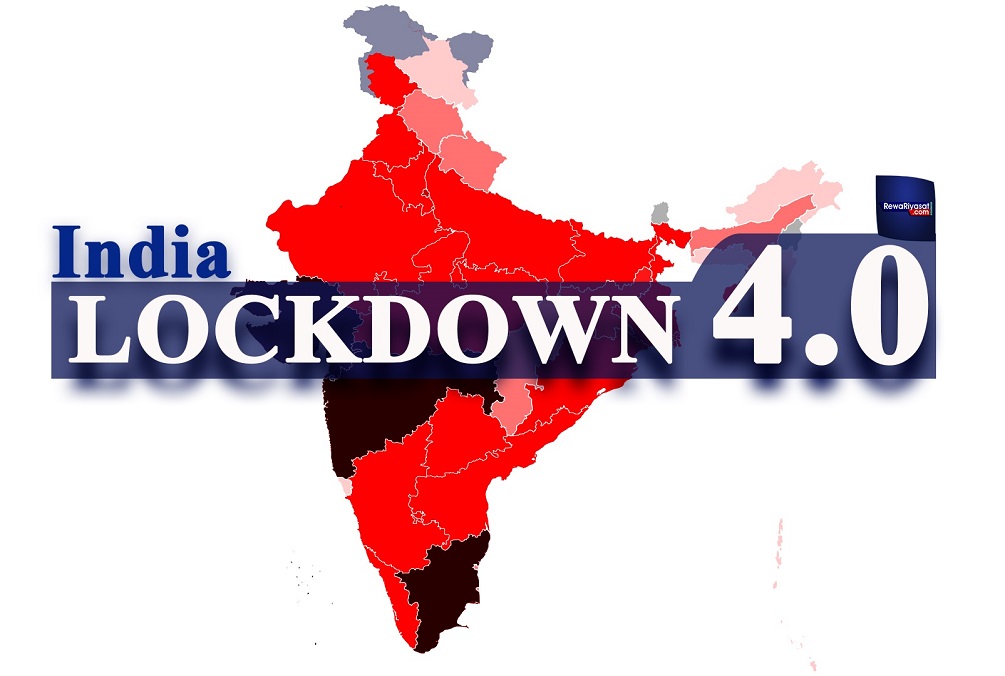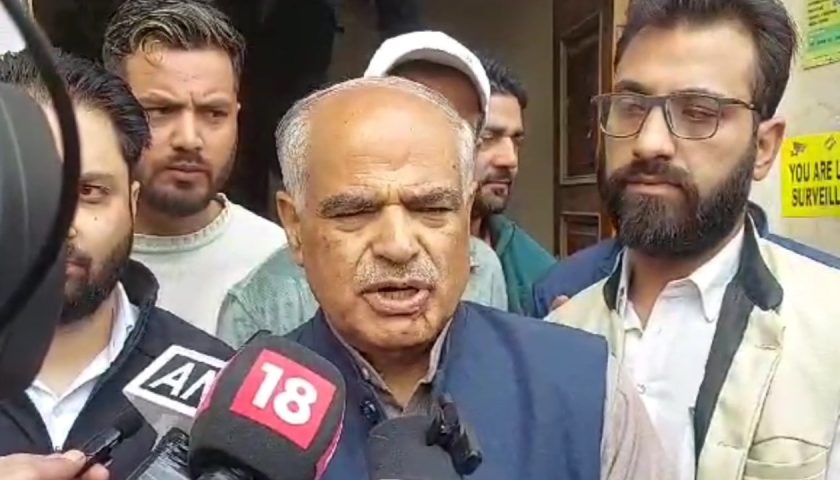By: Tahaa Yaseen
• Public spaces, flight ops, shopping malls to remain shut
• Offices, shops to reopen with conditions
• States to decide Red, Green, Orange Zones
The ongoing countrywide lockdown has been extended till May 31, the National Disaster Management Authority (NDMA) announced on Sunday.
In an order, the NDMA said lockdown measures need to be implemented for a further period of 14 days in the country to contain the spread of COVID-19.
The death toll due to COVID-19 rose to 2,872 and the number of total positive cases climbed to 90,927 Sunday morning, according to the Union Health Ministry.
The NDMA, in exercise of powers under Section 6 (2) (i) of the Disaster Management Act, 2005, hereby directs the ministries and departments of the Government of India, state governments and state authorities to continue the lockdown measures up to May 31, NDMA member secretary G V V Sarma said.
The authority further directs the National Executive Committee, headed by the Union Home Secretary, to issue modifications in the guidelines as necessary, keeping in view the need to open up economic activities while containing the spread of COVID-19, the order said.
The lockdown was first announced by Prime Minister Narendra Modi on March 24 for 21 days with effect from March 25. It was then extended till May 3 and again till May 17.
According to MHA guidelines, prohibition on all public gatherings, closure of schools, malls and restaurants, and suspension of flight and Metro services will remain in force till May 31 as the government on Sunday extended the ongoing countrywide lockdown to combat the COVID-19 spread.
The Union home ministry issued a nine-page guidelines listing the dos and don’ts during the lockdown 4.0 that has been clamped in the country to cut the chain of coronavirus infection.
The guidelines came soon after the National Disaster Management Authority (NDMA) extended the national lockdown beyond Sunday till May-end.
The new lockdown ended restrictions on employees returning to work at offices, factories and other industrial units, and allowed markets and shopping complexes to reopen as curbs were eased considerably outside coronavirus containment zones.
The practice of work from home should be followed to the extent possible, the MHA said. At workplaces, staggering of work hours should be adopted. There should be provision for thermal scanning, hand wash and sanitizers and common areas and rules of social distancing should be maintained.
According to MHA guidelines, markets and all shops can reopen, but the final decision belongs to the states.
“If open, these should maintain staggered timing to ensure social distancing. No economic activity, however, will be allowed within the containment zones, which have a high incidence of coronavirus cases,” the MHA stated.
It said all domestic, international air travel of passengers, except domestic air ambulance, will remain prohibited.
Metro rail services, schools, colleges will remain closed till May end, the guidelines issued by the Ministry of Home Affairs (MHA) said.
Hotels, restaurants, cinema halls, malls, swimming pools, gyms will also remain shut even as all social, political, religious functions, and places of worship will be closed till May 31, it said.
The MHA said inter-state movement of passenger vehicles, buses will be allowed with mutual consent of states involved during the COVID-19 lockdown 4.0.
States and Union Territories have been given the powers for delineation of Red, Green and Orange Zones as per COVID-19 situation, the MHA said.
All shops, except those in containment zones and malls, will be allowed to open from Monday with staggered timings during lockdown 4.0, it said.
In non-containment zones, local authorities must ensure shops open on staggered timing basis only, so as to ensure social distancing, the home ministry statement said. All shop owners must also ensure that customers maintain six feet distance and that not more than five people are allowed inside at any given time.
The night curfew, which restricts movement of people between 7 pm and 7 am, will continue. Also, people above 65 years of age, pregnant women and children below 10 years have been told to stay at home.
In fresh guidelines, the home ministry also allowed the resumption of app-based cab services; gave permission to the functioning of all shops, markets and commercial establishments except those in malls; and eased curbs on private offices that were previously allowed to function with 33% staff strength.
• All metro rail services, schools, colleges, hotels, restaurants will continue to remain shut.
• Marketplaces can open but cinema halls, shopping malls, gymnasiums, swimming pools will remain closed. But sport complexes and stadiums will be permitted to open. Spectators will not be allowed.
• Inter-state movement of passenger vehicles and buses with mutual consent of states and union territories involved.
• Intra-state movement of passenger vehicles and buses as decided by the states and union territories.
• The zones – red, green, orange – containment zones and buffer zones will be decided by the states on the basis of parametres of ministry of health.
• In containment zones, only essential activities shall be allowed.
• All other activities will be permitted in green, orange and red zones except those specifically prohibited.
• E-commerce activities for non-essential goods are now permitted even in red zones.
• Clause for private companies to make it mandatory for employees to use ‘Aarogya Setu’ app has been removed
• Large gatherings including religious, cultural, sports, political, will not be permitted.
• All religious places/places of worship will remain closed to the public. Religious congregations are strictly prohibited.
• People over 65 years of age, people with co-morbidity, pregnant women and children below 10 years of age to stay at home, except for essential and health purposes.
All the activities that were permitted during the third phase of lockdown will continue to be allowed in the fourth phase as well, however, states have been given a lot of freedom to add restrictions in any area. It is important to note that above activities will not be allowed in containment zones. In containment zones, the central government guidelines only permit essential services.
Here’s the list of guidelines to follow this phase of lockdown:
• Wearing face cover is mandatory in all public places.
• Spitting in public and work places will be punishable with fine as per the rules and regulations of local authorities, states or union territories.
• Social distancing in public places including markets, workplaces, public transport and ceremonies like marriages etc.
• Not more than 50 guests allowed for marriage functions.
• Funerals and last rites shall not be attended by more than 20 people.
• Consumption of liquor, gutka, pan masala, tobacco not allowed in public places.
• Shops to ensure minimum 6 feet distance among customers and not allow more than 5 people at a time inside the shop.
• Provision for thermal scanning, hand wash and sanitisers to be made at all entry and exit points and common areas.
• Making or circulating a false alarm or warning to as to disaster or its severity or magnitude, leading to panic, shall on conviction, be punishable with imprisonment up to one year or with fine.
• Obstruction to any officer or employee of the central government or the state government or any authorised personnel is punishable.






